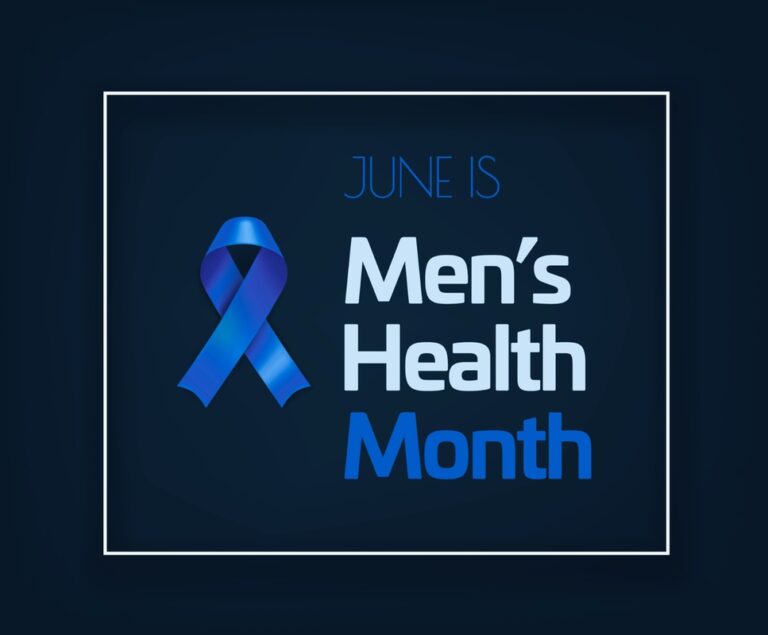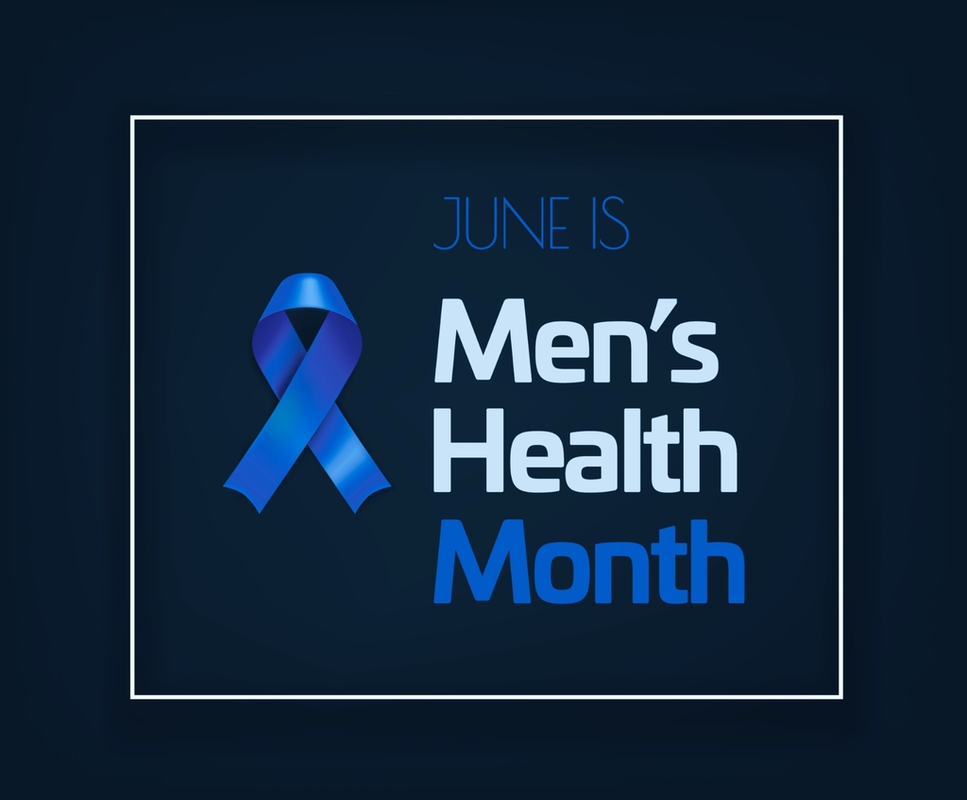Men’s Health Month
Father’s Day occurs in June, reminding us to celebrate and show appreciation for our fathers. Perhaps, you are a father, and it allows you some time to reflect on your family. Men’s Health Month also occurs in June, many communities hold a period of activities and/or educational initiatives forced on the health and wellness of men and boys.
There are a variety of illnesses and diseases that affect men at a higher rate than women. Knowing this, it is more important than ever to be sure men are prepared with the knowledge necessary to know when to see the doctor and to know it is ok to see the doctor. The majority of men spend their lives being told things like; “Men don’t cry ”, “Man up, toughen up”, and more. These statements and beliefs have shown to do more harm than good and have undoubtedly affected men in the United States.

Men’s Health Risks
Heart Disease – According to the CDC, heart disease is the leading cause of death for men in the United States. The term heart disease refers to multiple types of heart conditions, heart attacks, coronary artery disease and more. The CDC also estimates that 1 in every 4 deaths of men are related to heart disease. Risks for heart disease include unhealthy diet, physical inactivity, overweight/obesity/diabetes, heredity and excessive alcohol use.
Cancer – Prostate cancer is the most common type of cancer among men in the United States, next in line is non-melanoma skin cancer. According to the American Cancer Society there are a variety of risk factors including:
- Age – For men under the age of 40, a prostate cancer diagnosis is rare. The risk rapidly rises after the age of 50 with the majority of cases occurring in men over the age of 65 (approximately 6 out of every 10 cases).
- Race/Ethnicity – African American men and Caribbean men of African ancestry are at a higher risk when compared to men of other races, it also affects them at a younger age. There is a lower risk for Asian American men and Latino/Hispanic men when compared to non-Hispanic white males. Reasons for the various risk levels associated with specific races are not clear.
- Geography – Prostate cancer is most prevalent in North America and Oceania which includes Australia, Melanesia, Micronesia and Polynesia.
- Family History – Having a brother or father with prostate cancer can more than double a man’s risk of developing prostate cancer. The risk is even greater for men with several relatives affected. That being said, plenty of men are diagnosed with prostate cancer without any family history of it, so don’t dismiss the possibility if it doesn’t run in your family.
- Genetics – A small percentage of risk relates to inherited gene mutations. These gene mutations include the BRCA1 or BRCA2, these gene mutations are linked to increased risk of ovarian and breast cancer in women, and prostate cancer risk in men. Those with Lynch syndrome are also at higher risk, lynch syndrome is a hereditary non-polyposis colorectal cancer (HNPCC) caused by inherited gene changes.
- Factors with less clear effects on prostate cancer risks – Other risk factors include but are not limited to: smoking, diet, obesity, prostate inflammation, STIs, chemical exposures, and vasectomies.
Alcohol Use – According to the CDC, men drink more alcohol than women, with 59% of adult men reporting drinking in the last 30 days compared to 47% of adult women report drinking in the last 30 days. Men are two times more likely to binge drink. Alcohol is associated with injury, violence and other harms. The CDC also speculates that alcohol may affect men’s sexual and reproductive health. If you or another man in your life feels drinking is a problem for you, ask your doctor if there is anything they can do to help you or refer you to see a therapist to enable you to learn healthy coping mechanisms.
Just as men are less likely to go to doctors than women, they are also less likely to seek help from a mental health professional. From a young age men are told to be a man, be tough, etc., this oftentimes can leave men feeling like they have to bottle up their feelings which doesn’t foster the development of healthy coping mechanisms, it makes stress worse.
Proactive and Preventive Health Measures for Men
A man taking care of his health is beneficial for him and the members of his family, friends, and community. Boys should be raised knowing it’s okay, and necessary to head to the doctor for an appointment if they feel like something isn’t right or just to go in for regular check-ups. Men’s Health Awareness Month allows us to open up this discussion and empower the boys and men of the United States to utilize the health care system as a tool for better health, increased lifespan and information.
To reduce the risk of heart in disease in men, a variety of measures can be taken. Seeing your Doctor at Suntree Internal Medicine of Melbourne, Florida for regular checkups to monitor blood pressure, cholesterol, and triglyceride levels is a great way to monitor your health. You can limit alcohol intake, quit smoking, eat heart healthy foods and overall lower your stress level. Contact Suntree Internal medicine today to schedule an appointment.







